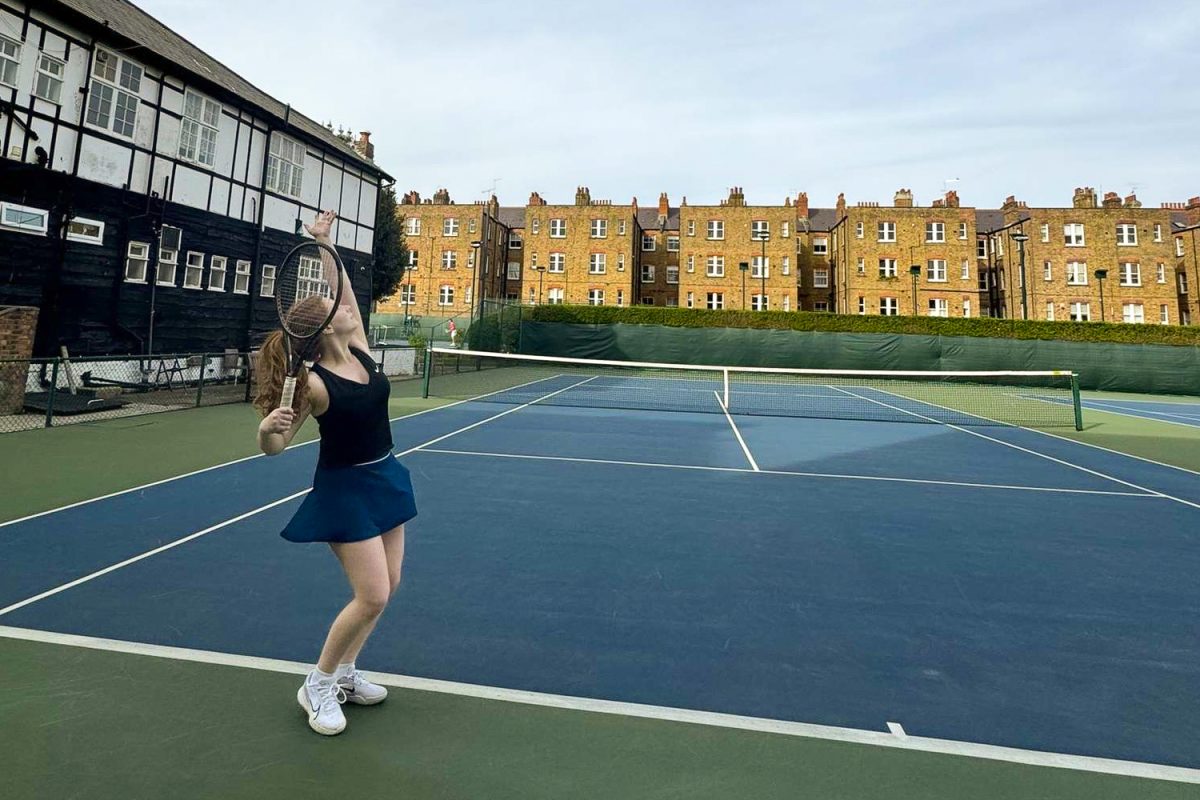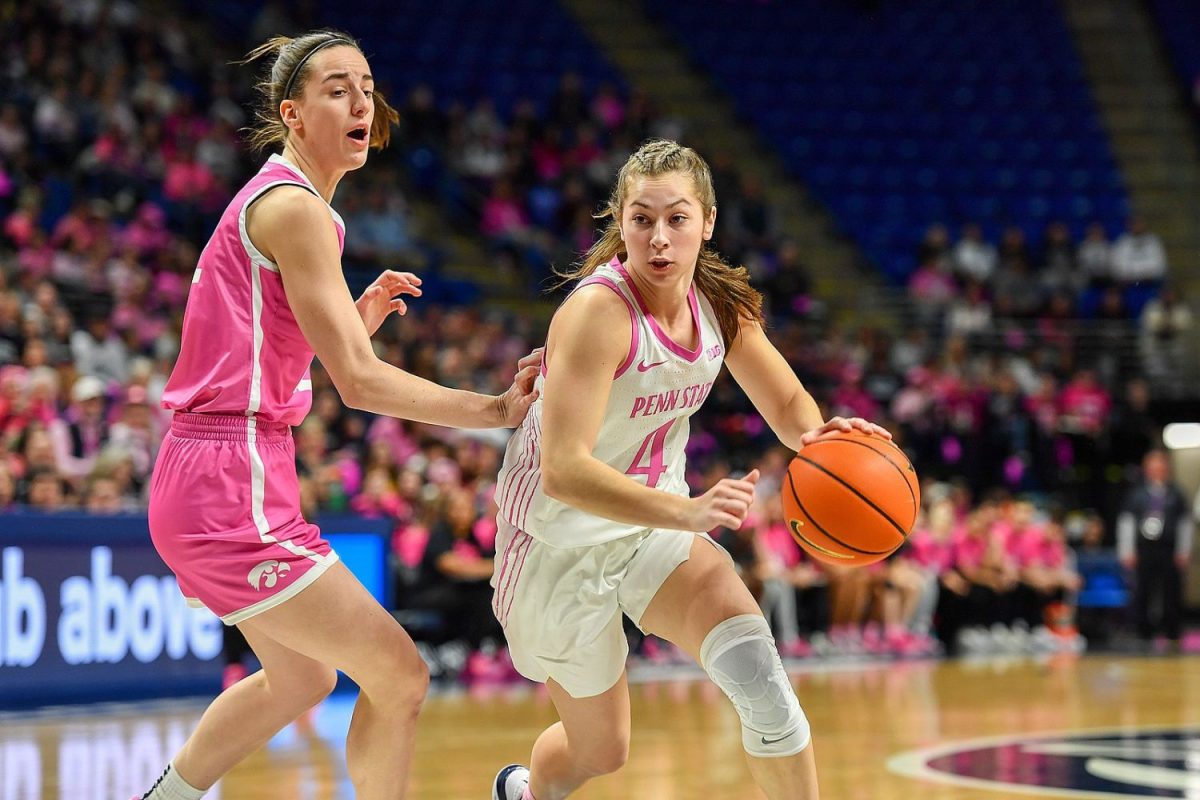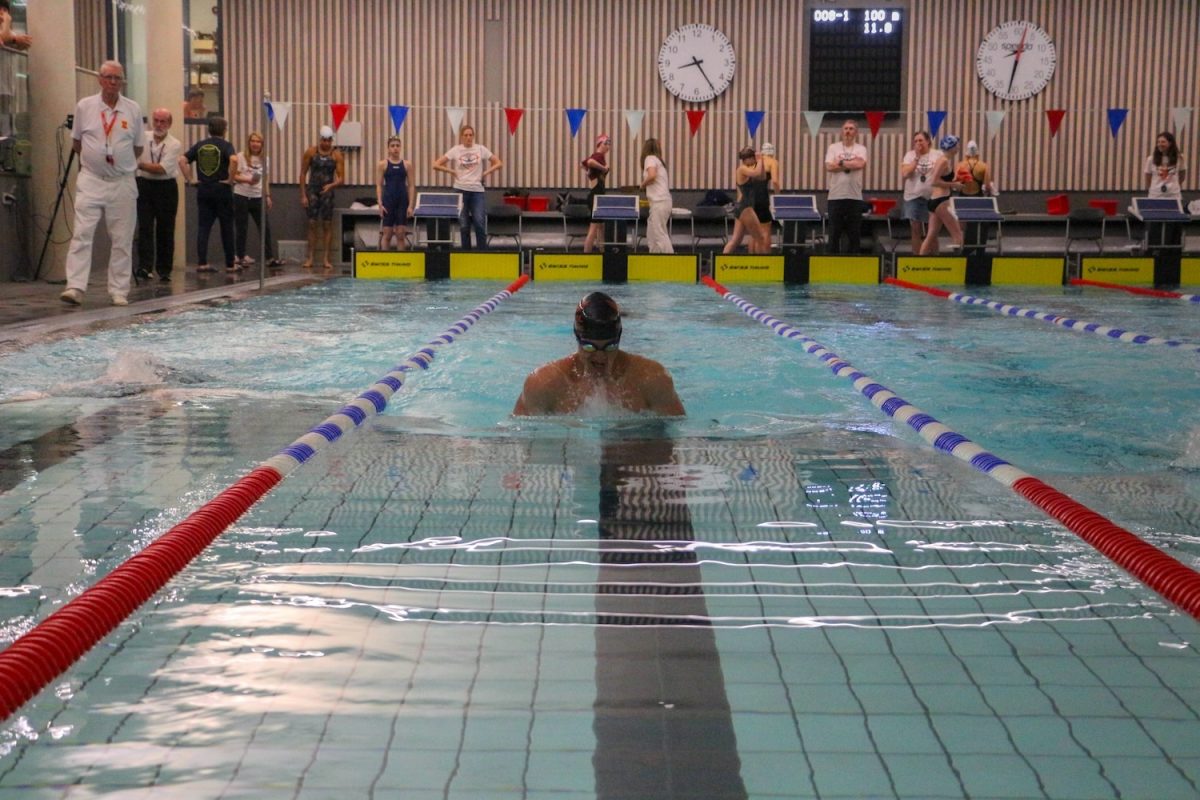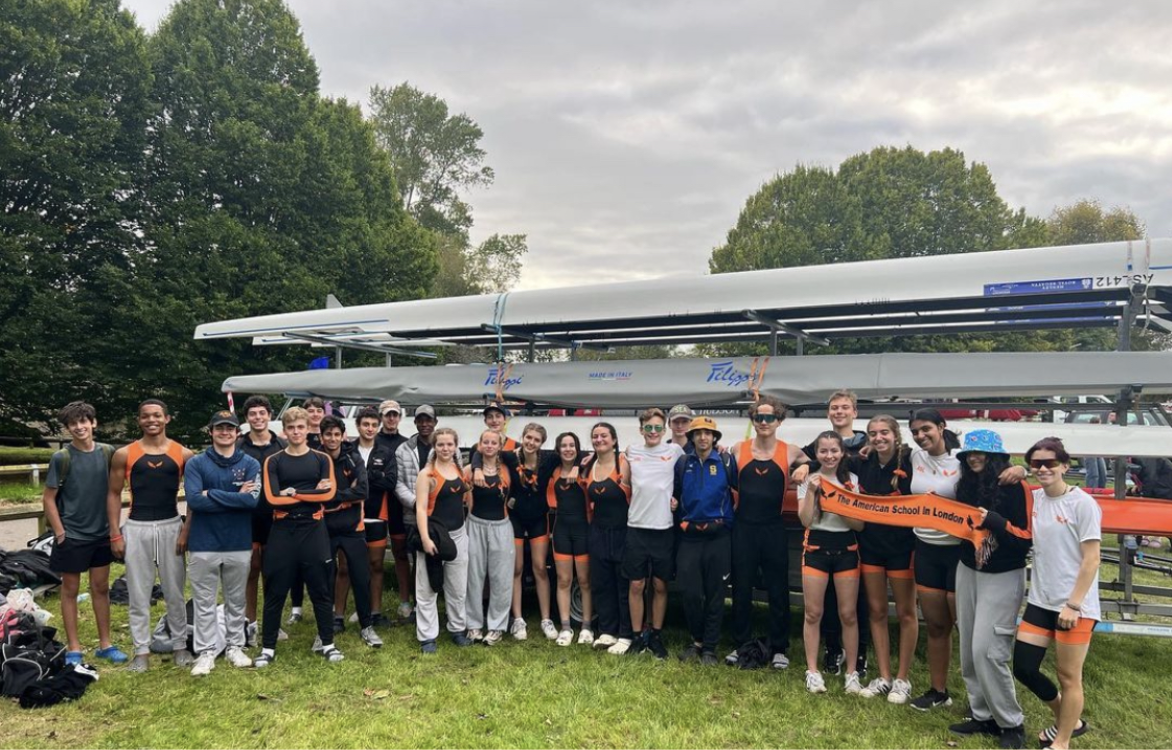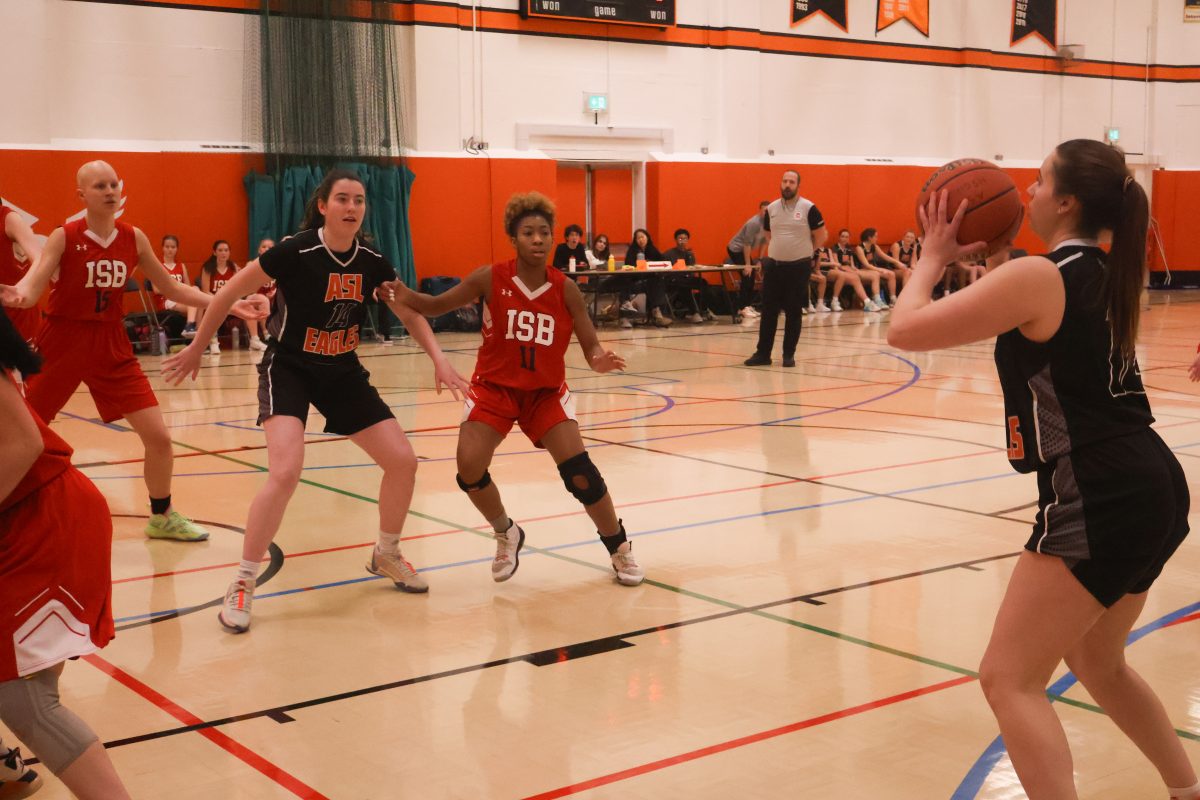When Je’Anna Parnell (’15) reached out to catch the basketball to complete a layup – as she had done many times – she did not know it would spell the end of her high school basketball career.
What ensued seemed to occur in slow motion for Parnell. “My knee twisted – I felt it twist one way, then twist another way. Then I fell on the floor,” she said. A sharp, involuntary scream reverberated around the gym; her coaches huddled around her, concern etched on their faces.
These concerns proved to be warranted: Athletic Trainer Jenny Newell rushed to the gym to attend to Parnell, and, following a brief examination of her knee, understood the injury was very serious.
As the shock of the injury began to subside, Parnell began to comprehend her situation. “In my mind I was thinking ‘why is this happening? This shouldn’t be happening’,” she said.
Parnell’s doctor’s appointment had a difficult conclusion: /her anterior cruciate ligament (ACL) was torn.“It’s upsetting because basketball is my favorite sport and it’s my senior year, and I’m not going to play in college so it’s my last time to ever play basketball,” Parnell said.
During a JV rugby game, Andrew Skow (’17) planted his left foot in an attempt to change direction. Instead of turning, however, he was met with immense pain; his foot remained stationary as his cleats were stuck in the ground, causing his lower femur to twist. His knee – unlike his foot – didn’t remain stationary: It twisted, thus tearing his ACL. “Based on the sound and the crippling effect of the injury, I knew that something bad had happened, but not to what extent,” he said.
While his injury occurred during a JV rugby game, the first moment of realization was not related to ASL rugby; instead, his mind looked toward the coming weekend. “That weekend I had a tryout for my county [Middlesex] team, the second trials, and I knew that I couldn’t go to that. That realization hit me first,” he said.
Once Skow connected the dots and figured out that he wouldn’t be able to go to the Middlesex tryout, he experienced a multitude of emotions. “It was shock, it was fear, it was panic to the extent of what had happened because I knew that the effect would be adverse.”
Although Skow will not be able to participate physically throughout the entire rugby season, he has been attending practices and assisting his coaches by voicing his opinion on things he has observed. Additionally, Skow was afraid that he would not be as close with his teammates as before due to his injury. However, “the camaraderie didn’t really fade away, which I was afraid of in that I’m still part of the team, only that I’m not playing, and that has really saved me in this whole experience,” he said.
While practicing for his club team, Westside, months ago, Nelson Boachie-Yiadom (’17) went up for a layup – like Parnell – and collided with another player, resulting in pain in one of his ribs. Boachie-Yiadom at first thought the pain was from his muscles or his spine, disregarding it and continuing to play. While playing he found it very painful when going up for rebounds, especially when players pushed him in the ribs. The pain extended to his daily life at home, too. “If I moved in my bed I could feel it [the pain] in my back.”
When the pain continued for a few months, he went to the hospital to get an x-ray, showing that he had bent one of his ribs, which would keep him out of action for six weeks.
As Boachie-Yiadom’s injury coincided with the beginning of tryouts, he was unable to participate.. “It’s been tough. I’ve been sitting on the sideline trying to watch, and it’s really sad because I want to play with my teammates,” Boachie-Yiadom said. Even though he is unable to play, he attends tryouts as well as practices to encourage his teammates. “[The injury] is allowing me to sit on the sidelines, and I’ve been trying to encourage my teammates during this tryout, especially because it’s been very hard this year,” he said.
However,Boachie-Yiadom found reassurance in the knowledge he’d be able to resume action soon. He was able to start playing the week before Thanksgiving break with minimal pain, and quickly regained the pleasure of “being able to dunk again.”
In addition to missing out on basketball, Parnell, an avid exerciser, will be incapable of completing even the most basic physical tasks, such as exercise. “I think not being able to exercise will be difficult because I love exercising. I also do crossfit and I can’t do that,” she said.
Due to the severe nature of her injury, Parnell will undergo surgery in late December. What particularly makes Parnell anxious is the disruption to what she considers a given component of her daily life, “It’s going to change everything about how I work out,” she said.
Things that she used to take for granted, such as comfort, are now hard to come by. “My leg is uncomfortable no matter of its position. It’s something that probably won’t go away for a while. When I’m sleeping I can only be in a certain position for me to be somewhat comfortable,” she said.
Despite not being able to play, Parnell hopes to remain part of the team in some form. Newell believes that it is incumbent upon her as the school’s trainer to assist injured athletes to feel they still belong to the team. “One of the onuses on me and the coach is to help an athlete still feel that they’re a part of the team and able to participate up to the level that they can, safely.
“The wonderful thing about athletics is that there is such a range within every game of things that you can contribute to, being on the court or not being on the court,” she said. Newell also emphasises the importance of long-term injured athletes seeing their game through a player-coach mentality, thus allowing them to view the game from a different perspective.
Riley Evans (’17) is no stranger to the physio’s table. Early in her freshman season for varsity girls soccer, Evans broke her wrist, causing her to miss the rest of the season, including ISSTs. Following her recovery from the broken wrist, bad luck struck again for Evans.
One day during practice for varsity girls basketball, Evans was standing as a teammate took a free-throw. The shot airballed and landed right on Evans’ head, causing a concussion. Evans would miss out on the remainder of the season, including ISSTs.
This year – Evans’ sophomore year – she’d find herself injured again. In the final group stage game of varsity girls soccer’s ISST campaign against Frankfurt International School (FIS), Evans sprained her ankle. This time, however, she refused to let the injury consign her to the sidelines. “[My ankle] got really swollen and bruised, but I was able to play through the rest of the tournament.” This determination was soon validated: Varsity girls soccer went on to win the tournament, with Evans scoring in the final against Cairo American College (CAC).
While Evans did her best to continue playing during girls soccer ISSTs, the magnitude of Skow’s injury rendered him unable to finish the match.
Skow has found it very hard to manage mentally since his injury. “It is a heavy toll not being able to play, having to go to games and watch the team,” he said. Regardless of the result, Skow’s experience is tinged with regret. “[When we lose] I feel that I could have contributed something to change that, and winning I wish I could be a part of that,” he said.
As a result of his extended break from basketball, Boachie-Yiadom’s focus shifted elsewhere “I’ve got more time to do more homework, and grades have gone up which is good,” he said.
This improvement in academic performance that Boachie-Yiadom notes is shared by Parnell. With basketball no longer consuming the bulk of her time, she plans to dedicate herself to schoolwork to the same extent as she would athletics. “I’m focusing on school. I have time – I’m just sitting around, icing my leg,” she said.
As Newell said, the injured athlete’s involvement in the team does not begin and end with playing. Skow believes the rugby team’s continued inclusion of him in the team is helping his ongoing mental recovery. “What really is carrying me through this injury is the rugby team. Without all of those guys and the coaches and the captains and the players, I would not be able to get up in the morning.
“And it’s the fact that they still consider me a team member, that I am so dedicated and so motivated to get back from this injury as quickly as I can,” Skow said.
Parnell shares Skow’s optimistic, forward-looking attitude. As stressed by her mother following the confirmation of her injury, basketball is not everything. “I keep telling myself that everything happens for a reason and even though I might not know what that reason is, there is a reason out there,” Parnell said.

